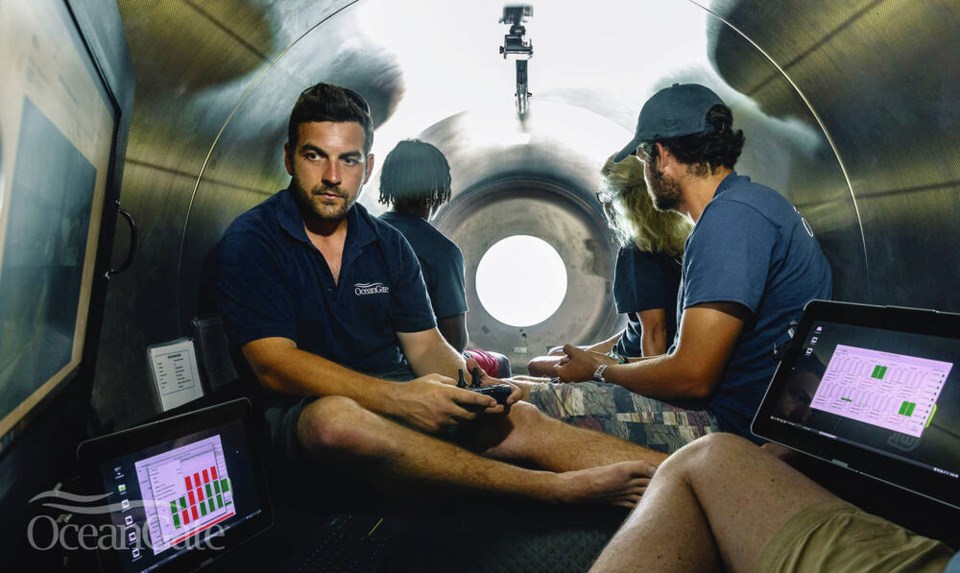We just witnessed the destruction of the Titan submersible on a dive to view the wreck of the Titanic. It was quickly dubbed a disaster, and rapt media attention was paid to the hunt for the Titan, perhaps in expectation of another “edge-of-the-seat” rescue attempt. But the whole episode raises some thorny questions.
The first is: Was the destruction of the Titan with the loss of five lives a disaster? Is there a number that turns an unfortunate incident into a disaster? If so, the recent bus crash in Manitoba that killed 16 seniors was surely a greater disaster than the loss of the Titan. Both of these pale in comparison to another disaster at sea that occurred at the same time as the Titan’s destruction: the loss of hundreds of lives when an over-crowded refugee boat sank off the Greek coast. But much more attention — and certainly far more resources — were devoted to the Titan rescue effort.
My colleague Dr. Charuka Maheswaran alerted me to Barack Obama’s comments on exactly this point. As it happened, the former U.S. president was in Greece last week, speaking at a conference. The Huffington Post reported that he drew attention to the loss of the Titan, but added, tellingly: “the fact that that’s got so much more attention than 700 people who sank, that’s an untenable situation.”
In a later interview with CNN, The Huffington Post reported, Obama suggested this differential coverage “reflects a larger problem with inequality,” adding that “it’s indicative of the degree to which people’s life chances have grown so disparate.” And of course, behind the tragedy of the refugee deaths lies an even greater disaster: the combination of poverty, violence and climate change that is forcing millions of people to flee their homes and seek security elsewhere.
The second question is: Was this an unforeseeable and surprising disaster, or merely an accident waiting to happen? Well, it has since been revealed that Stockton Rush, the creator of the Titan, took a pretty cavalier attitude to safety. Standards and regulations, he implied, are for wimps. They get in the way of clever people such as himself who are innovative and entrepreneurial.
Reports since the Titan was lost have revealed that there was a great deal of concern among the professionals in the submersibles business about the approach taken by Rush — but nobody acted on these concerns. I am reminded of a comment from the 1980s by James Tye, the founder of the British Safety Council, reported in a recent Spectator book review: “It is no use putting these accidents down to acts of God. Why does God always pick on badly managed places with sloppy practices?”
The Ancient Greeks called attitudes such as those of Rush “hubris” — exaggerated pride or self-confidence. As the Merriam-Webster Dictionary notes, the Greeks “considered hubris a dangerous character flaw capable of provoking the wrath of the gods. In classical Greek tragedy, hubris was often a fatal shortcoming that brought about the fall of the tragic hero.”
From that perspective, the loss of the Titan — appropriately, the Greek name for a family of giants that used to rule the Earth until the Olympian gods overthrew them — was poetic justice, and at least the captain went down with his ship. So it would have been ironic, rather than tragic, if it hadn’t also killed four other people.
Which takes us to the unfortunate passengers and my third question: What on Earth were they doing down there? They have been branded as explorers and scientists, but this is specious, as the site is well documented. They were hardly discovering new places or adding to scientific knowledge — except, ironically, knowledge about the dangers of the innovations that Rush was creating, dangers that, sadly, they had not been made aware of.
Instead, Paul Johnston, curator of maritime history at the Smithsonian, in Washington, D.C., nailed it in comments reported in this newspaper on June 23, labelling them “risk tourists”: “people who are going down to look at an underwater graveyard,” adding “it’s a plaything for wealthy people — a checkbox on a bucket list.” Some bucket, some list, to paraphrase Sir Winston Churchill.
Dr. Trevor Hancock is a retired professor and senior scholar at the University of Victoria’s School of Public Health and Social Policy
>>> To comment on this article, write a letter to the editor: [email protected]



